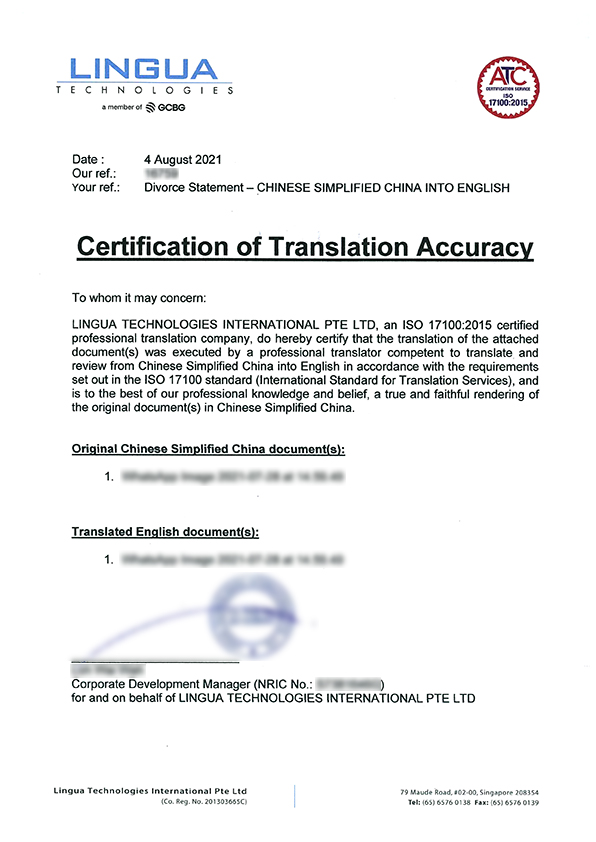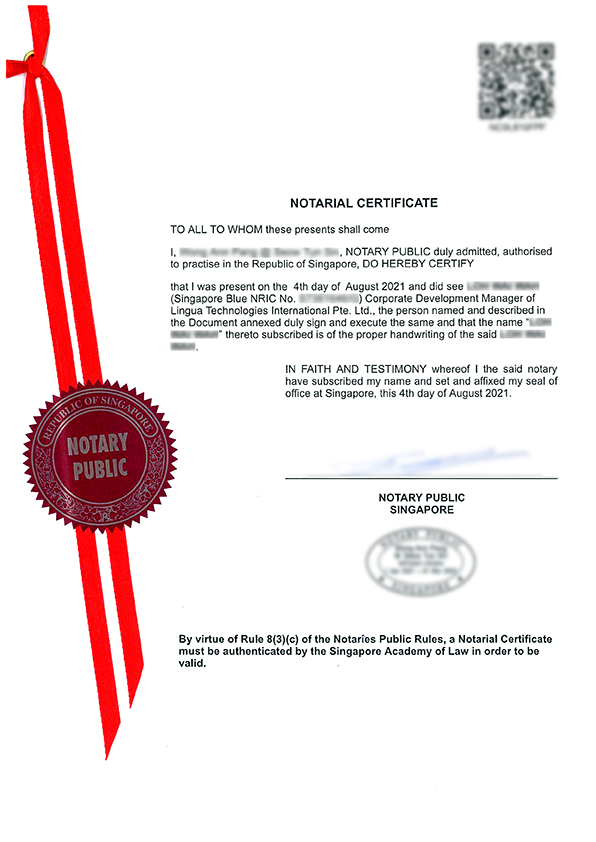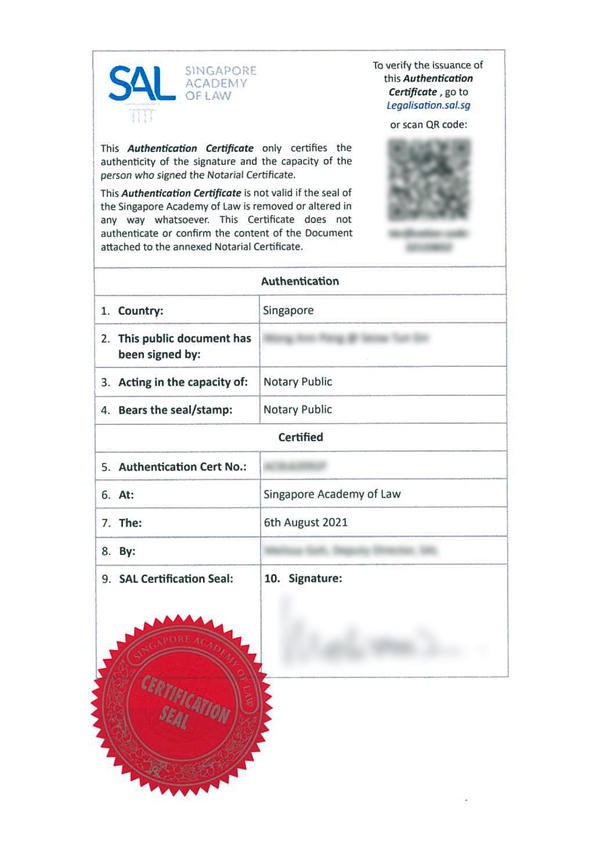When you are applying for a visa, permanent residency, or permission to work or study in Singapore, the relevant authorities require certain documents to be submitted. One of the requirements is that if the documents are not in English, a translated version of the document must be submitted with the original document.
When submitting a translated document to the Immigration and Checkpoint Authority (ICA), you will require 3 different types of certifications:
- Certificate of Translation Accuracy
- Notarial Certificate
- Authentication Certificate
What is a Certified Translation?
First, let’s define certified translation.
The American Translators’ Association (ATA) defines a certified translation as a translation accompanied by a signed statement attesting that the translation is accurate and complete to the best of the translator’s knowledge and ability.
This means that if you are a professional translator or a legit translation company, the translation may be “certified” by you.
What is a Certificate of Translation Accuracy?

So by this definition, a certified translation is a translated document completed by a professional translation outfit (translator or translation company) assuring the recipient of the translated document of the following:
- That the translation is a true, complete and accurate rendering of the content of the source document
- That the translation is done by a translator knowledgeable in both the languages required in the translation
A Certificate of Translation Accuracy issued by the translation company will accompany the translated document attesting that the translation has been done professionally and that the translation is a true, complete and accurate rendering of the content in the original document.
In most circumstances, a Certificate of Translation Accuracy from a professional translation company with a globally recognized standard would suffice. This includes government agencies such as the Ministry of Manpower (MOM), Ministry of Education (MOE), Land Transport Authority (LTA), Singapore Police Force (SPF), Registration of Marriage (ROM), Accounting and Corporate Regulatory Authority (ACRA) etc.
However, translation bearing only the Certificate of Translation Accuracy from a professional translation company is only one of the three certificates required when submitting your translated document to the Immigration & Checkpoint Authority (ICA).
What are the requirements for submitting a translated document to the Immigration & Checkpoint Authority (ICA)?
According to the Explanatory Notes found on the Immigration & Checkpoint Authority (ICA) website, documents not in English must be translated.
The Immigration & Checkpoint Authority (ICA) accepts:
(i) Translations provided by the embassy of the country that issued the document.
(ii) Translations produced by a notary public in Singapore or the country to issue the document.
(iii) Privately created translations attested by the embassy of the country that issued the document or notarized by a notary public in Singapore or the country that issued the document.
Option (iii) is the most common method to get your translated documents ready for submission to the Immigration & Checkpoint Authority (ICA).
For option (iii), you can get your documents translated by a professional translation company and get them attested by the embassy or notarized by a notary public in Singapore. The problem is that not all embassies will certify translations of documents done by outside translation companies. The next better option would be to go to a notary public to notarize your translated document.
What is a Notarial Certification?

A notarized translation is a certified translation that has been officially notarized by a notary public.
A Notarial Certificate officiates a document, and it is witnessed and signed by the notary public with an officiating ribbon and seal.
Notarization is the process of officiating a document, and it can only be executed by a Notary Public.
According to the ICA, official translations are translations that have been certified/ attested by the relevant Embassies or notarized by Notary Publics in Singapore.
However, not all Embassies will attest to private translations, and even fewer will provide translation services. Most Notary Publics will also require your translations to be certified by translation companies before they are notarized.
What is an Authentication Certification?

With effect from Tuesday, 1 October 2019, all documents that require Notarization will have to be authenticated by the Singapore Academy of Law (SAL). This follows changes to the Singapore Academy of Law (Amendment) Rules 2019 and the Notaries Public (Amendment) Rules 2019, which take effect that day.
This is an effort by the SAL to strengthen document integrity and prevent cases of fraudulent notarial and authentication certificates. The Authentication Certification certifies the authenticity of the signature and the capacity of the person who has signed the public document. Where appropriate, the identity of the seal or stamp that the public document bears.
Only SAL can perform authentication of Notarial Certificate.
Together with the Certificate of Translation Accuracy and Notarial Certificate, the Authentication Certificate forms the trinity of certification not to be missed when submitting your translated documents to ICA.

